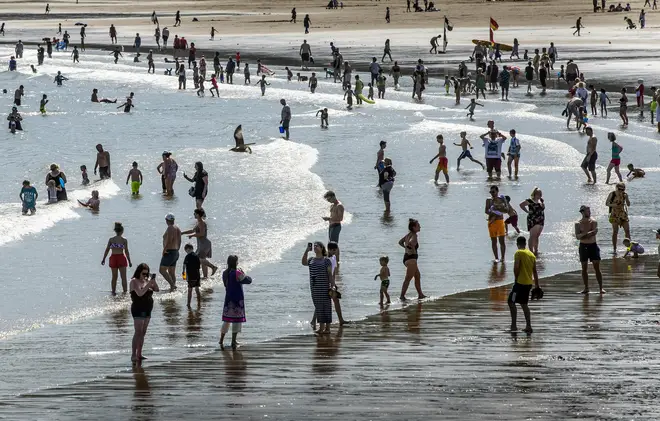
Nick Abbot 10pm - 1am
25 July 2019, 07:53

Today could be the hottest day Britain has ever had with forecasters predicting the temperature could reach 39C.
The current record of 38.5C (101.3F) was set in Faversham, Kent, back in August 2003.
Meteorologists believe there is a 70% chance that somewhere in southern or eastern England will break that record for the hottest UK temperature.
A yellow weather warning for thunderstorms is in place across large parts of England and Scotland from 3pm today until 4am on Friday.

Network Rail has warned speed restrictions may be introduced in areas where tracks are at risk of buckling.
The extreme heat has also prompted London North Eastern Railway to advise customers against travelling altogether, with the East Coast Main Line operator warning that delays and cancellations were likely between Peterborough and London King's Cross.
Network Rail's Nick King said: "Keeping passengers safe and moving are our top priorities during this heatwave.
"That's why we sometimes have to put speed restrictions on to prevent our rails - that can be over 20 degrees hotter than air temperatures - from buckling, which can derail a train and cause huge delays."

On Wednesday, temperatures reached highs of 33.7C in Cavendish, Suffolk.
Some Britons have opted to cool off in lakes, rivers and the sea, but the dangers of swimming in open water were highlighted when the bodies of three people were recovered after they got into difficulty.
Scotland Yard says a search is ongoing for someone who was last seen in the River Thames near Waterloo.Inspector Stuart Simpson, from the Metropolitan Police, said: "Whilst at times the Thames may look appealing, especially in this hot weather, it remains very dangerous all year round.
"On initial entry, the water can seem warm on the surface, but further in it can be freezing cold and there are often very strong undercurrents.
"The initial shock of the cold water is often what leads to people going subsurface and subsequently drowning."